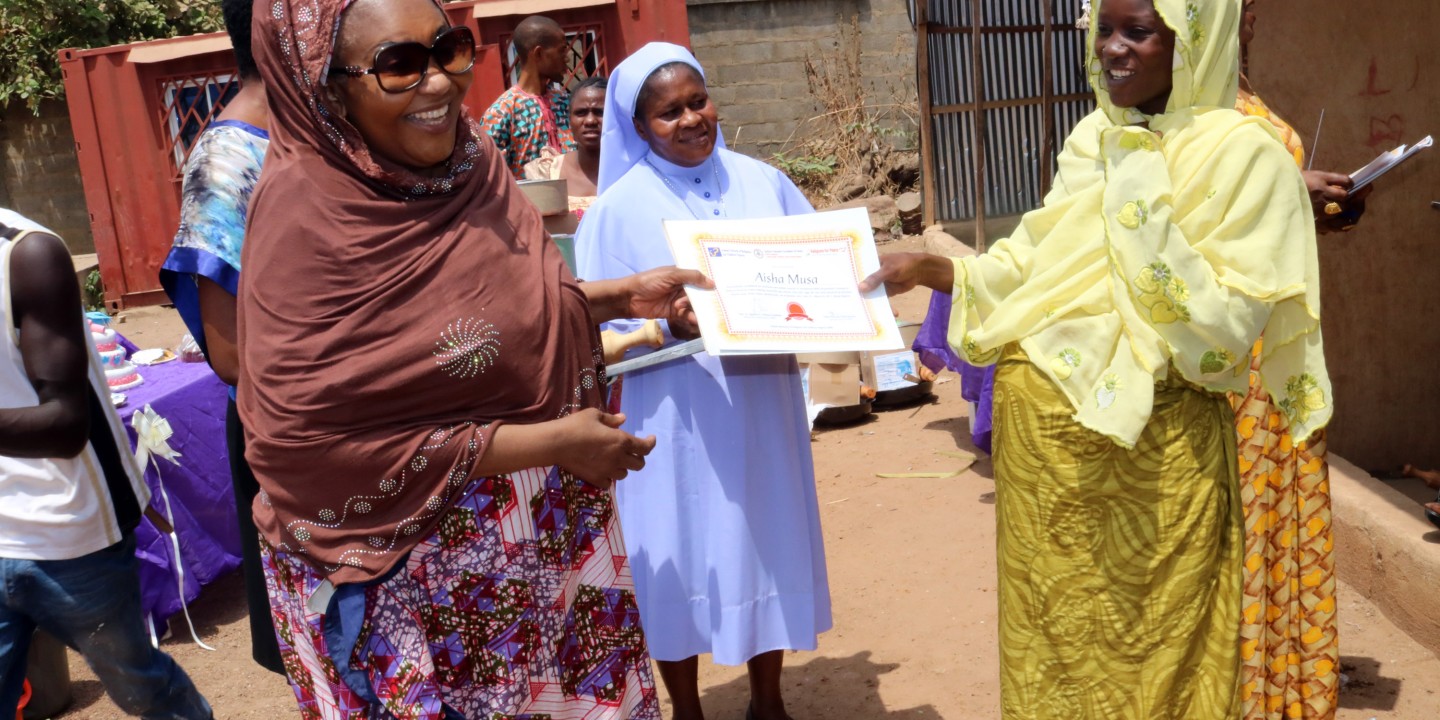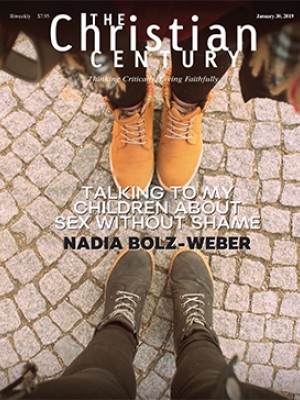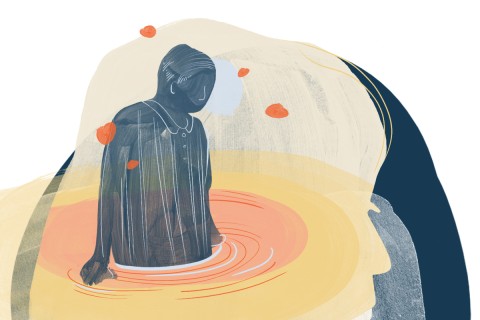Nigerian women’s network builds interfaith bridges
The Women of Faith Peacebuilding Network has reached more than 10,000 Muslim and Christian women across the country.

When Fatima Isiaka, a respected Muslim leader in Abuja, Nigeria, asked a cab driver to drop her off at St. Kizito Catholic Church, the driver thought she was lost.
Isiaka, who wears a jilbab head covering and robe, recalled: “He told me, ‘This is a church!’ I said, ‘Yes, I know.’”
Isiaka was part of an innovative effort to bring Christian and Muslim women together in hopes of fostering religious tolerance and peaceful coexistence. The Women of Faith Peacebuilding Network was started in 2011 by Agatha Ogochukwu Chikelue, a sister of the Daughters of Mary Mother of Mercy congregation, and Maryam Dada Ibrahim, a local Muslim businesswoman.
Isiaka, now deputy director in the network’s Abuja branch, looks back fondly on her time at the St. Kizito Catholic Church.
“I loved every bit of my stay there,” Isiaka said. “I found a place in the church where I performed ablution, to set up my mat and pray.”
Since the group began, the Women of Faith Peacebuilding Network’s activities have reached more than 10,000 Muslim and Christian women across the country. The network also offers vocational training in catering, bead making, fashion design, and soap production to a smaller group of women who participate in an annual 21-day seminar.
Read our latest issue or browse back issues.
“The empowerment serves as bait to lure more women to the network so that they’ll learn peaceful coexistence,” Isiaka said.
Nigeria’s population is evenly divided: about half Muslim and half Christian. Northern Nigeria is majority Muslim, while southern Nigeria is majority Christian. Ensuring equal Christian and Muslim political representation at local, state, and national levels is an especially sensitive subject.
Since 2009, Boko Haram, a group of extremist Muslims whose name means “Western education is forbidden,” has terrorized northeast Nigeria. The terror group murdered Christians and burned churches, hoping to clear the area of Christian influences and create an Islamic caliphate to rule under Shari’a law. The group has carried out attacks in other parts of Nigeria and targeted moderate Muslims as well. In 2014, Boko Haram kidnapped 270 female students in Chibok, Nigeria, prompting the international social media campaign #BringBackOurGirls.
When Chikelue started thinking about how to build bridges between Christians and Muslims, she knew that religious leaders would need to step up.
“We don’t want to use our religion as a barrier—rather, we want to use it as a stepping-stone toward achieving common good,” she said. “The essence of an interfaith group is to break barriers, break the walls and build bridges.”
In Nigeria, some clerics forbid their members from even visiting a house of worship of another religion. But Chikelue dismissed those notions, using the respect afforded to her as a Catholic sister to visit mosques and set up meetings with more moderate Islamic clerics to propose an interfaith network.
A parishioner recommended that Chikelue contact Ibrahim, a respected leader in the Muslim community. Chikelue visited Ibrahim’s office, and within a few months the two started planning the first meeting between Christian and Muslim women in Abuja. As the capital of Nigeria, the city of 2.5 million is more diverse and integrated than other parts of the country.
Chikelue and Ibrahim recruited patrons for the organization: John Onaiyekan, a cardinal and archbishop of Abuja, and Muhammadu Sa’ad Abubakar III, the sultan of Sokoto and president-general of the National Nigerian Supreme Council for Islamic Affairs.
It took time, patience, and weekly meetings after Sunday mass to convince a group of Christian women to sit down with Muslim women.
“That first meeting in 2011 was one of the best meetings we’ve had,” Chikelue said. “The Christian women changed their perceptions about Muslims even after just one dialogue together.”
The group’s meetings include presentations by religious leaders explaining basic tenets of each faith and challenging the view of religious extremists who say Muslims and Christians should not interact with each other. Sometimes they discuss parts of their religions that overlap—for example, Abraham’s plan to sacrifice his son and how each faith tells the story.
Participants also visit each other for holidays. In 2017, a group of Christian women prepared the evening meal at the mosque to break the fast during Ramadan. Muslim women have joined special church programs, especially the annual end-of-the-year interfaith party organized by Onaiyekan.
The women who participate in the peacebuilding network are expected to pass on the information to the children in their communities by making presentations in their elementary and secondary schools about religious tolerance and talking about their experiences working with women from other religions.
“There is also violence that doesn’t carry a gun,” Chikelue said. “There are situations whereby parents don’t allow their children to have interaction with children of a different religion.”
While the group has worked hard to break down barriers and build friendships between Muslims and Christians, Isiaka knows there is still much work to do. Still, she is hopeful.
“We have been able to understand each other better and have also passed the message of religious tolerance to our children,” she said. —Religion News Service
A version of this article appears in the print edition under the title “Nigerian women build interfaith bridges.”





